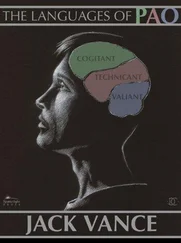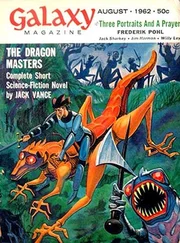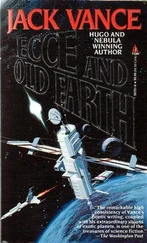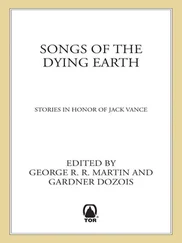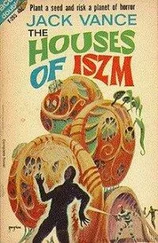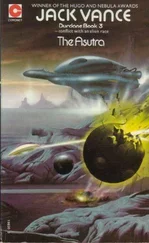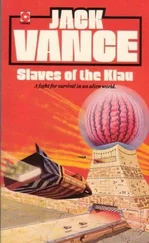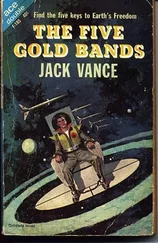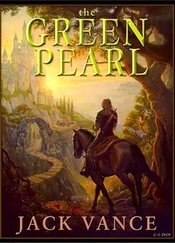Jack Vance - The Dying Earth
Здесь есть возможность читать онлайн «Jack Vance - The Dying Earth» весь текст электронной книги совершенно бесплатно (целиком полную версию без сокращений). В некоторых случаях можно слушать аудио, скачать через торрент в формате fb2 и присутствует краткое содержание. ISBN: , Жанр: Фантастика и фэнтези, на английском языке. Описание произведения, (предисловие) а так же отзывы посетителей доступны на портале библиотеки ЛибКат.
- Название:The Dying Earth
- Автор:
- Жанр:
- Год:неизвестен
- ISBN:0-671-44184-1
- Рейтинг книги:3 / 5. Голосов: 1
-
Избранное:Добавить в избранное
- Отзывы:
-
Ваша оценка:
- 60
- 1
- 2
- 3
- 4
- 5
The Dying Earth: краткое содержание, описание и аннотация
Предлагаем к чтению аннотацию, описание, краткое содержание или предисловие (зависит от того, что написал сам автор книги «The Dying Earth»). Если вы не нашли необходимую информацию о книге — напишите в комментариях, мы постараемся отыскать её.
The Dying Earth — читать онлайн бесплатно полную книгу (весь текст) целиком
Ниже представлен текст книги, разбитый по страницам. Система сохранения места последней прочитанной страницы, позволяет с удобством читать онлайн бесплатно книгу «The Dying Earth», без необходимости каждый раз заново искать на чём Вы остановились. Поставьте закладку, и сможете в любой момент перейти на страницу, на которой закончили чтение.
Интервал:
Закладка:
A vast sound came from below, a hundred sharp reports. Ulan Dhor and Elai hastened to the window and looked down. A mind-filling sight occupied the streets.
The ten-foot vestibules leading below the city had snapped open. From each of these licked a great tentacle of black transparent jelly like the substance of the fluid roads.
The tentacles reached into the air, sprouted a hundred branches which pursued the madly fleeing Ampridatvians, caught them, stripped away their robes of gray and green, then whipping them high through the air, dropped them into the great central square. In the chill morning air the populace of Ampridatvir stood mingled naked together and no man could distinguish Green from Gray.
"Rogol Domedonfors has great long arms now," cried a vast voice, "strong as the moon, all-seeing as the air."
The voice came from everywhere, nowhere.
"I'm Rogol Domedonfors, the last ruler of Ampridatvir. And to this state have you descended? Dwellers in hovels, eaters of filth? Watch—in a moment I repair the neglect of five thousand years!"
The tentacles sprouted a thousand appendages—hard horny cutters, nozzles that spouted blue flame, tremendous scoops, and each appendage sprouted an eye-stalk. These ranged the city, and wherever there was crumbling or mark of age the tentacles dug, tore, blasted, burnt; then spewed new materials into place and when they passed new and gleaming structure remained behind.
Many-armed tentacles gathered the litter of ages; when loaded they snapped high through the air, a monstrous catapult, flinging the rubbish far out over the sea. And wherever was gray paint or green paint a tentacle ground off the color, sprayed new various pigments.
Down every street ran the tremendous root-things and offshoots plunged into every tower, every dwelling, every park and square—demolishing, stripping, building, clearing, repairing. Ampridatvir was gripped and permeated by Rogol Domedonfors as a tree's roots clench the ground.
In a time measured by breaths, a new Ampridatvir had replaced the ruins, a gleaming, glistening city— proud, intrepid, challenging the red sun.
Ulan Dhor and Elai had watched in a half-conscious, uncomprehending daze. Was it possibly reality; was there such a being which could demolish a city and build it anew while a man watched?
Arms of black jelly darted over the hills of the island, threaded the caves where the Gauns lay gorged and torpid. It seized, snatched them through the air, and dangled them above the huddled Ampridatvians—a hundred Gauns on a hundred tentacles, horrible fruits on a weird tree.
"Look!" boomed a voice, boastful and wild. "These whom you have feared! See how Rogol Domedonfors deals with these!
The tentacles flicked, and a hundred Gauns hurtled —sprawling, wheeling shapes—high over Ampridatvir; and they fell far out in the sea.
"The creature is mad," whispered Ulan Dhor to Elai. "The long dreaming has addled its brain."
"Behold the new Ampridatvir!" boomed the mighty voice. "See it for the first and last time. For now you die! You have proved unworthy of the past—unworthy to worship the new god Rogol Domedonfors. There are two here beside me who shall found the new race—"
Ulan Dhor started in alarm. What? He to live in Ampridatvir under the thumb of the mad super-being?
No.
And perhaps he would never be so close to the brain again.
With a single motion he drew his sword and hurled it point-first into the translucent cylinder of jelly—transfixed the brain, skewered it on the shaft of steel.
The most awful sound yet heard on Earth shattered the air. Men and women went mad in the square.
Rogol Domedonfors' city-girding tentacles beat up and down in frantic agony, as an injured insect lashes his legs. The gorgeous towers toppled, the Ampridatvians fled shrieking through cataclysm.
Ulan Dhor and Elai ran for the terrace where they had left the air-car. Behind they heard a hoarse whisper —a broken voice.
"I—am not—dead—yet! If all else, if all dreams are broken—I will kill you two . .."
They tumbled into the air-car. Ulan Dhor threw it into the air. By a terrible effort a tentacle stopped its mad thrashing and jerked up to intercept them. Ulan Dhor swerved, plunged off through the sky. The tentacle darted to cut them off.
Ulan Dhor pressed hard down on the speed lever, and air whined and sang behind the craft. And directly behind came the wavering black arm of the dying god, straining to touch the fleeting midge that had so hurt it.
"More! More!" prayed Ulan Dhor to the air-car.
"Go higher," whispered the girl. "Higher—faster—"
Ulan Dhor tilted the nose; up on a slant flashed the car, and the straining arm followed behind—a tremendous member stretching rigid through the sky, a black rainbow footed in distant Ampridatvir.
Rogol Domedonfors died. The arm snapped into a wisp of smoke and slowly sank toward the sea.
Ulan Dhor held his boat at full speed until the island disappeared across the horizon. He slowed, sighed, relaxed.
Elai suddenly flung herself against his shoulder and burst into hysteria.
"Quiet, girl, quiet," admonished Ulan Dhor. "We are safe; we are forever done of the cursed city."
She quieted; presently: "Where do we go now?"
Ulan Dhor's eyes roved about the air-car with doubt and calculation. "There will be no magic for Kandive. However, I will have a great tale to tell him, and he may be satisfied ... He will surely want the air-car. But I will contrive, I will contrive ..."
She whispered, "Cannot we fly to the east, and fly and fly and fly, till we find where the sun rises, and perhaps a quiet meadow where there are fruit trees ..."
Ulan Dhor looked to the south and thought of Kaiin with its quiet nights and wine-colored days, the wide palace where he made his home, and the couch from which he could look out over Sanreale Bay, the ancient olive trees, the harlequinade festival-times.
He said, "Elai, you will like Kaiin."
6. GUYAL OF SFERE
GUYAL OF SFERE had been born one apart from his fellows and early proved a source of vexation for his sire. Normal in outward configuration, there existed within his mind a void which ached for nourishment. It was as if a spell had been cast upon his birth, a harrassment visited on the child in a spirit of sardonic mockery, so that every occurrence, no matter how trifling, became a source of wonder and amazement. Even as young as four seasons he was expounding such inquiries as:
"Why do squares have more sides than triangles?"
"How will we see when the sun goes dark?"
"Do flowers grow under the ocean?"
"Do stars hiss and sizzle when rain comes by night?"
To which his impatient sire gave such answers as:
"So it was ordained by the Pragmatica; squares and triangles must obey the rote."
"We will be forced to grope and feel our way."
"I have never verified this matter; only the Curator would know."
"By no means, since the stars are high above the rain, higher even than the highest clouds, and swim in rarified air where rain will never breed."
As Guyal grew to youth, this void in his mind, instead of becoming limp and waxy, seemed to throb with a more violent ache. And so he asked:
"Why do people die when they are killed?"
"Where does beauty vanish when it goes?"
"How long have men lived on Earth?""
"What is beyond the sky?"
To which his sire, biting acerbity back from his lips, would respond:
"Death is the heritage of life; a man's vitality is like air in a bladder. Poinct this bubble and away, away, away, flees life, like the color of fading dream."
"Beauty is a luster which love bestows to guile the eye. Therefore it may be said that only when the brain is without love will the eye look and see no beauty."
Читать дальшеИнтервал:
Закладка:
Похожие книги на «The Dying Earth»
Представляем Вашему вниманию похожие книги на «The Dying Earth» списком для выбора. Мы отобрали схожую по названию и смыслу литературу в надежде предоставить читателям больше вариантов отыскать новые, интересные, ещё непрочитанные произведения.
Обсуждение, отзывы о книге «The Dying Earth» и просто собственные мнения читателей. Оставьте ваши комментарии, напишите, что Вы думаете о произведении, его смысле или главных героях. Укажите что конкретно понравилось, а что нет, и почему Вы так считаете.

